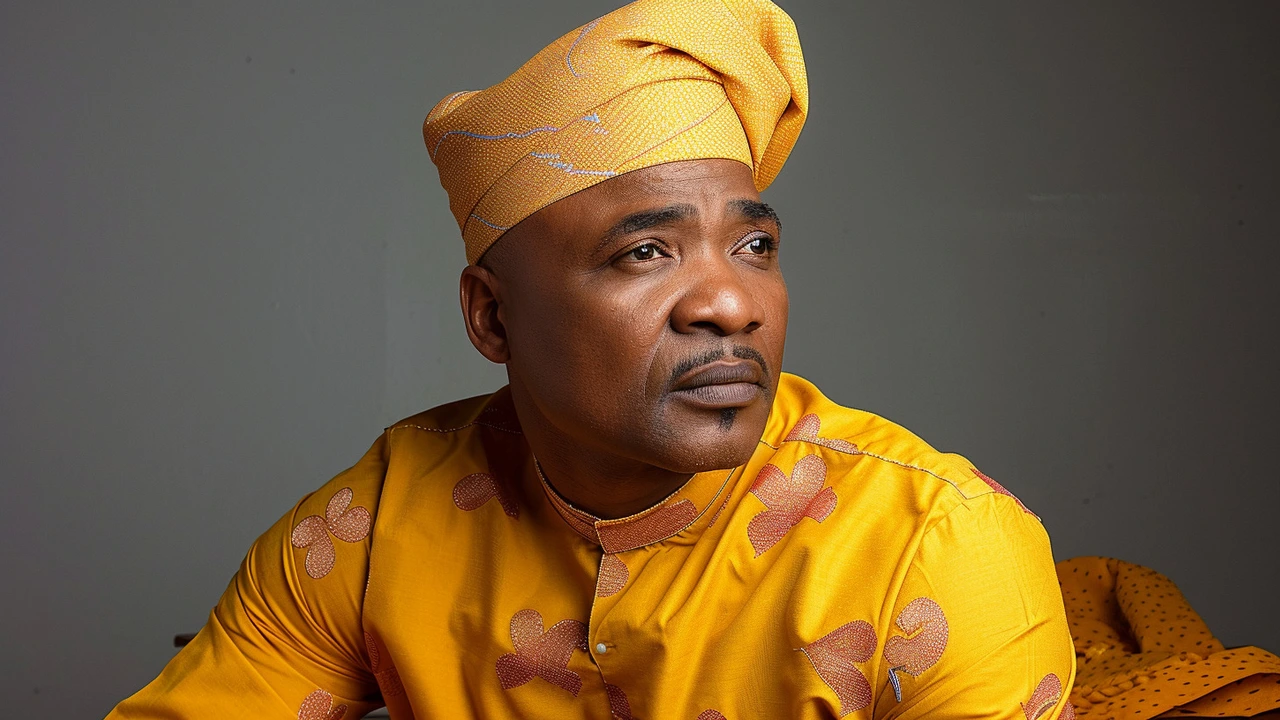
Kenneth Okonkwo Refutes Allegations of APC Rejoining: Insights into Nigeria's Political Landscape
Nollywood actor and estranged politician, Kenneth Okonkwo, has swiftly and vehemently denied recent speculations suggesting his intent to rejoin the All Progressives Congress (APC). This comes after his notable resignation from the Labour Party (LP), leaving political pundits and citizens alike buzzing with curiosity and confusion.
Okonkwo, who holds a unique blend of influence in both the entertainment industry and the political arena, recently voiced his profound dissatisfaction with the operations of the Labour Party. He did not mince words in describing the LP as a 'clandestine organization governed by a bunch of clowns', a stern critique hinting at deep structural discontent. His disappointment is not rooted in mere personal grievances but in what he perceives as the LP's lack of integrity and strategic foresight.
The Labour Party, led by Julius Abure, has been under scrutiny for its recent activities, which Okonkwo alleges are indicative of a party with no solid path or vision. A party unable to capitalize on the internal squabbles of other political factions is, in his opinion, doomed for political obscurity. Okonkwo's remarks suggest a broader sentiment of exasperation among members and observers who believe the party has fumbled potential opportunities for growth and influence.
Further fueling his discontent, Okonkwo criticized the LP's apparent inability to organize and execute a credible and widely accepted national convention. This incapacity, as he sees it, weakens the party's standing in the national political landscape and its appeal to politically active citizens seeking robust alternatives to the dominant parties.
In a recent interview shedding light on his political trajectory and ideological stance, Okonkwo mentioned the possibility of aligning with a different political entity should the Labour Party fail to rectify its course. However, he stopped short of naming any specific party, instead emphasizing the paramount need for integrity, clear vision, and strategic action in any political grouping he associates with moving forward.
Shortly after this interview, a flurry of reports began circulating, erroneously claiming that Okonkwo was poised to rejoin the APC. This prompted an immediate and firm rebuttal from the actor-politician on his social media account. Utilizing the platform X, Okonkwo labeled such reports as 'fake news' and directed his followers to the full interview for an accurate account of his statements and intentions.
In his social media posts, Okonkwo took a transparent approach, linking the interview and encouraging supporters and critics alike to seek information directly from credible sources, rather than succumbing to misleading headlines. His tactic underscores a broader issue within media and political communications in Nigeria: the rapid spread of misinformation and the importance of media literacy among the populace.

Political Realignments and Party Loyalty
Okonkwo's political journey mirrors the complex and often turbulent nature of party politics in Nigeria. His initial departure from the APC was motivated by disenchantment with the party's direction and practices, seeking solace in what he initially perceived to be the more progressive Labour Party. His subsequent disillusionment with the LP, however, highlights the pervasive challenges facing political parties in Nigeria—namely, maintaining integrity, promoting internal democracy, and effectively harnessing public support.
Political loyalty in Nigeria is often fluid, with officials and members regularly crossing party lines in search of better platforms or more aligned ideological stances. This dynamic reflects both the evolving political ideologies within the country and the pragmatic considerations of politicians seeking to maximize their influence and impact.
In the case of Kenneth Okonkwo, his sharp criticism and ultimate departure from the Labour Party serve as a microcosm of broader discontent within the political class. His readiness to publicly condemn the internal failures of the LP suggests a wider frustration that could lead to further fracturing or the emergence of new, reform-minded political movements.
The Importance of Integrity and Strategic Vision
At the heart of Okonkwo's critique lies a call for integrity and strategic planning in political leadership. For any political party to thrive and effect meaningful change, these elements are non-negotiable. The Nigerian political landscape is marked by a multiplicity of parties, yet few manage to sustain long-term credibility and citizen trust. The Labour Party’s recent falterings, as highlighted by Okonkwo, serve as a stark reminder of this reality.
As citizens become increasingly disillusioned with traditional political entities and their practices, the demand for accountability, transparency, and visionary leadership grows. Okonkwo’s public denouncement of party failures resonates with a citizenry fed up with political business as usual, hungry for leaders and parties that offer genuine hope and solutions.
Public Perception and the Media's Role
The swift propagation of rumors regarding Okonkwo’s supposed return to the APC underscores another crucial aspect of contemporary politics: the role of the media in shaping narratives and influencing public perception. Misleading reports can swiftly derail political careers, alter public opinion, and muddy the political waters.
In defending himself against false claims, Okonkwo also highlights the need for responsible journalism and media consumption. His proactive approach to addressing these rumors and directing followers to verified information serves as a model for how politicians and public figures can effectively manage their public narratives.
As citizens and media practitioners, the onus lies in promoting truthfulness, scrutinizing sources, and prioritizing accuracy in reporting. The health of a democracy is invariably tied to the integrity of its information ecosystem. Okonkwo’s experience acts as both a cautionary tale and a rallying cry for higher standards in political reportage.

Conclusion: A Transformative Political Landscape
As Kenneth Okonkwo navigates his political journey, his experiences and statements shed light on the broader dynamics at play within Nigeria’s political sphere. His staunch denial of any plans to return to the APC, coupled with his critique of the Labour Party, emphasizes a critical need for reform, integrity, and visionary leadership across all political entities.
For politicians, parties, and the citizenry, the message is clear: the time for complacency is over. The future of Nigeria’s political landscape depends on the collective efforts to demand and uphold higher standards, ensuring that parties and leaders alike are held accountable and committed to the true tenets of democratic governance.
Kenneth Okonkwo's story is not just about his political affiliations but about a larger movement towards a more authentic and effective political discourse in Nigeria. As events unfold, his trajectory will undoubtedly continue to inspire, challenge, and provoke necessary dialogue and action among those committed to the nation's progress.